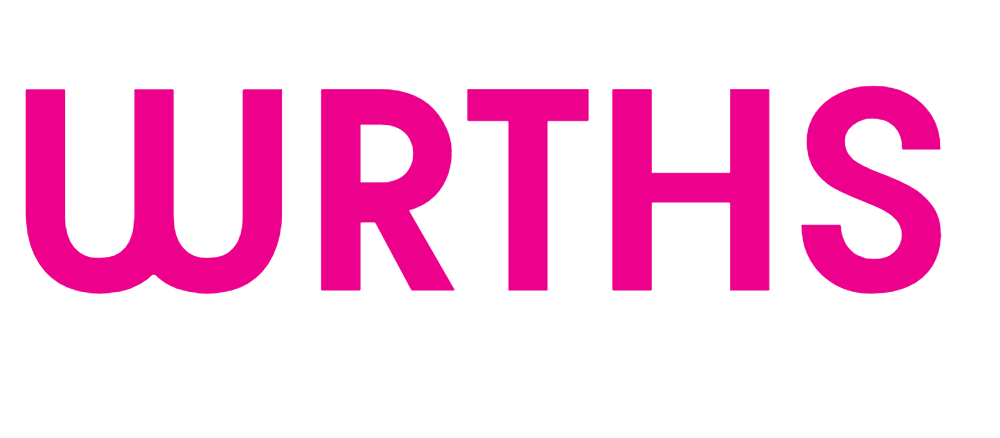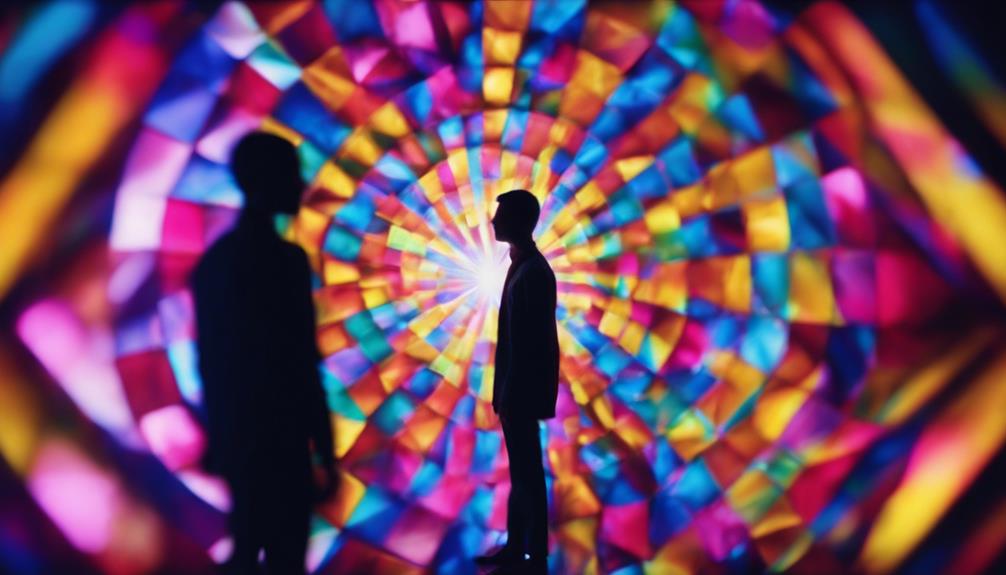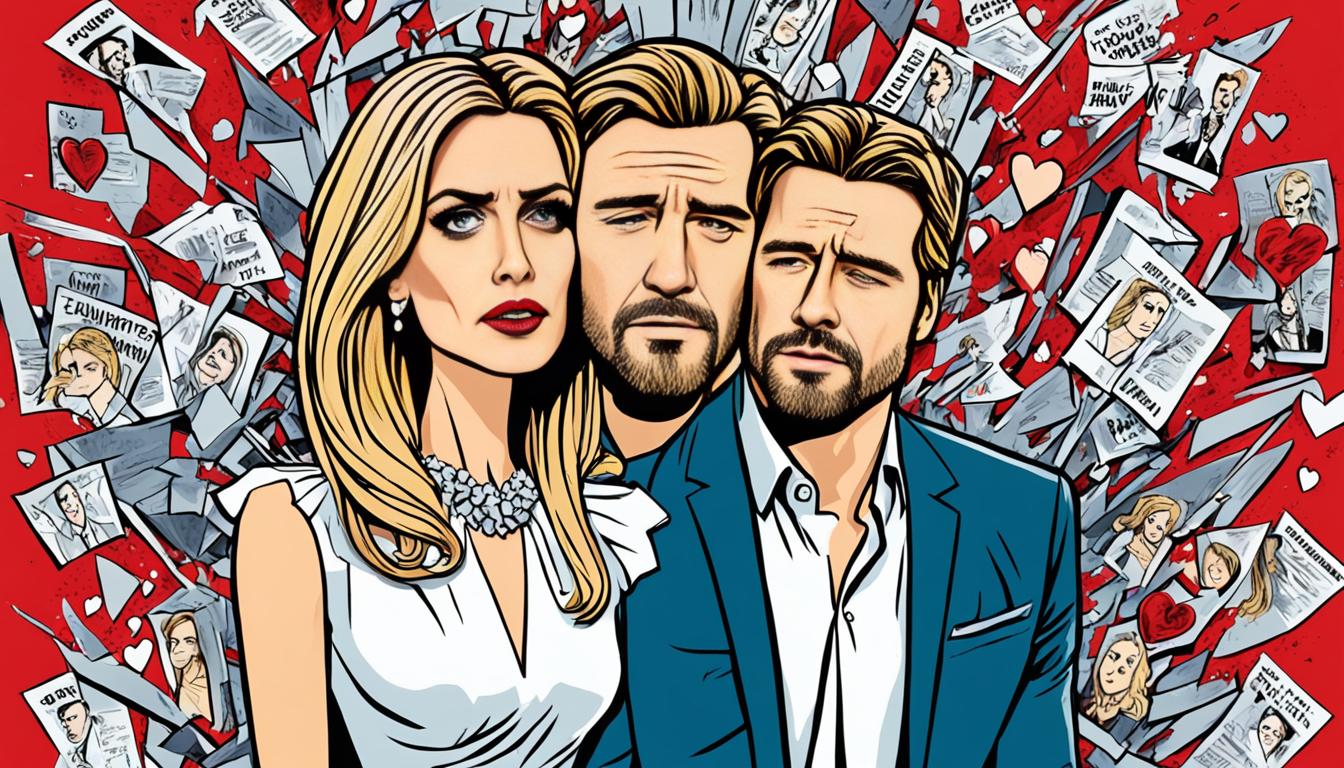Coming out as LGBTQ+ in Hollywood can be a pivotal moment, with visibility playing an important role in promoting authentic representation and challenging harmful stereotypes. Historically, LGBTQ+ individuals have been marginalized in media, but increased visibility can inspire societal change by normalizing coming out. Pioneers like Ellen DeGeneres and Jodie Foster have broken barriers, and their courage has paved the way for future generations. However, fear of being outed and concerns about typecasting and backlash still exist. As the industry moves forward, it's vital to prioritize authentic portrayals and provide a platform for LGBTQ+ actors to come out and thrive.
Key Takeaways
• Coming out in Hollywood can boost mental health and career longevity, reducing anxiety and depression, and increasing authenticity and creativity.
• Authentic LGBTQ+ portrayals in media challenge harmful stereotypes, promote empathy, and inspire societal change by normalizing coming out.
• Trailblazers like Ellen DeGeneres, Jodie Foster, and Neil Patrick Harris paved the way for increased LGBTQ+ visibility, reducing stigma and fear of being outed.
• Historically, the lack of LGBTQ+ representation in media contributed to harmful stereotypes, but increased visibility is promoting inclusivity, diversity, and empathy.
• Improved LGBTQ+ representation in Hollywood leads to more authentic storytelling, increased empathy, and a more inclusive industry, ultimately promoting a culture of acceptance.
Breaking Down Stereotypes on Screen
By moving away from harmful tropes and portraying LGBTQ characters authentically, Hollywood can break down stereotypes on screen and promote inclusivity.
This shift in representation can have a profound impact on the LGBTQ community, challenging preconceived notions and promoting understanding and acceptance.
In TV and film, gay characters are often reduced to stereotypes, perpetuating harmful and inaccurate representations. However, by showcasing diverse and nuanced LGBTQ stories, Hollywood can contribute to breaking down these stereotypes and promoting empathy.
Authentic representation in media can empower individuals to come out and embrace their identities, fostering a more inclusive and understanding society.
The Power of Representation Matters
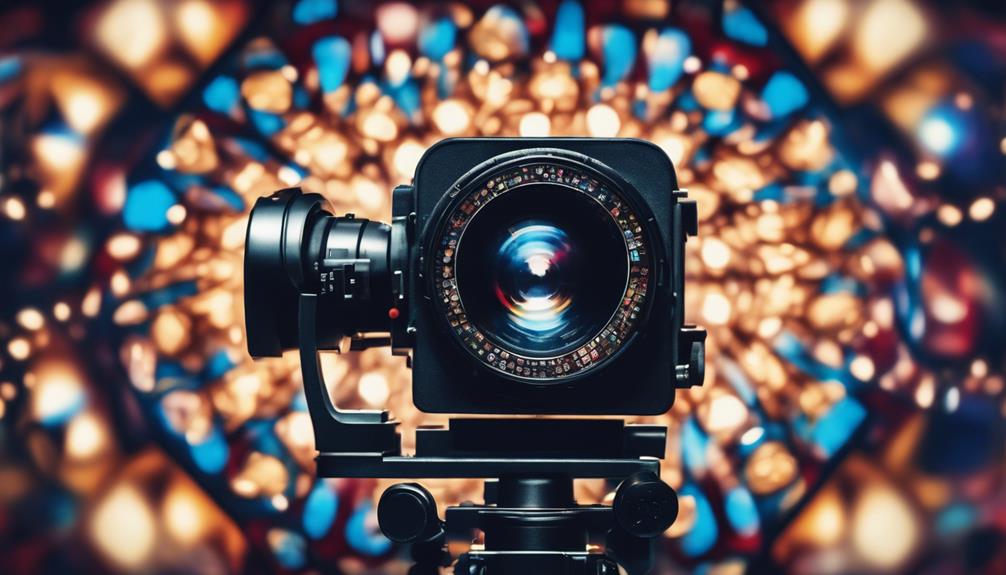
Studies have consistently shown that representation in Hollywood has a profound impact on societal attitudes, with positive LGBTQ+ portrayals in media leading to increased acceptance and reduced discrimination. This is particularly significant for gay people, who've historically been marginalized and underrepresented in mainstream media.
The power of representation matters, as it provides visibility for LGBTQ+ individuals and challenges stereotypes and misconceptions that have been perpetuated through media. When men, who identify as gay, see themselves reflected in media, it fosters a sense of connection and empathy.
Increased visibility of LGBTQ+ individuals in Hollywood can lead to positive social change, promoting inclusivity and diversity in mainstream media. By showcasing authentic LGBTQ+ characters, media can dispel harmful stereotypes and promote understanding and acceptance.
As a result, the impact of coming out in Hollywood extends far beyond the screen, inspiring individuals and promoting a more inclusive society.
Authentic Portrayals of LGBTQ+ Lives

Authentic portrayals of LGBTQ+ lives in Hollywood are essential, as they not only combat stereotypes but also provide a platform for LGBTQ+ actors to come out and share their stories, inspiring others in the process.
Openly gay actors, for instance, can bring authenticity to gay men's roles, ensuring that their experiences are represented accurately. Similarly, transgender actors can provide nuanced portrayals of transgender characters, breaking down harmful stereotypes.
Authenticity is key in these representations, as it fosters empathy and connection with the audience. When LGBTQ+ actors come out and share their stories, it inspires others in the community to embrace their identities.
Authentic representations of LGBTQ+ lives in Hollywood challenge societal norms and promote acceptance. By providing a platform for diverse LGBTQ+ experiences, Hollywood can promote understanding and acceptance, ultimately contributing to a more inclusive society.
Challenging Societal Norms Through Storytelling
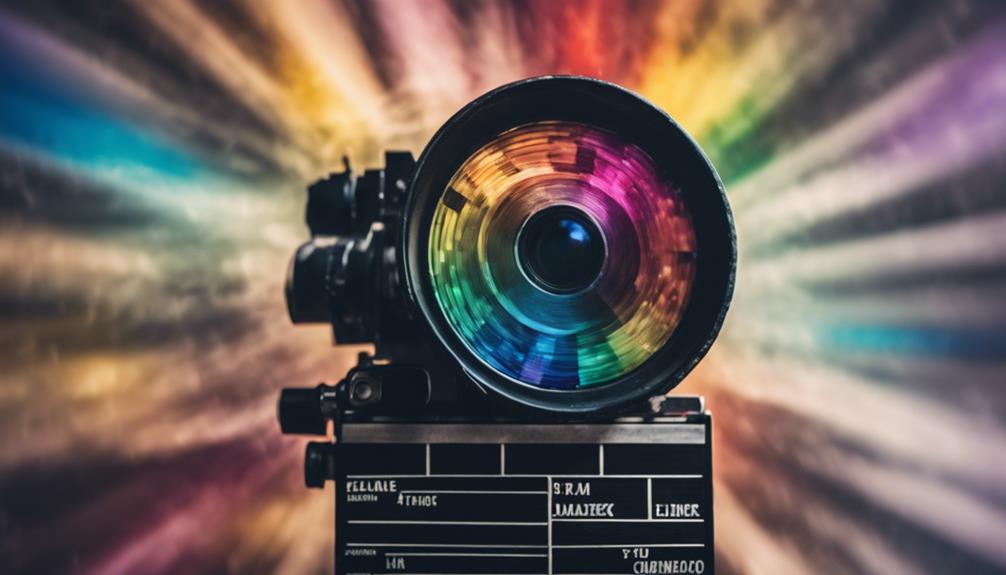
Through thought-provoking storylines, Hollywood challenges societal norms by amplifying the voices of LGBTQ+ individuals, fostering a cultural shift towards empathy and understanding. By showcasing authentic stories of coming out experiences, Hollywood promotes acceptance and breaks stereotypes, inspiring a necessary shift in societal attitudes.
- Authentic representation of coming out stories in films and TV shows empowers viewers to embrace their own identities.
- Positive portrayal of coming out in Hollywood narratives helps break stereotypes and promotes acceptance of LGBTQ individuals.
- By depicting the struggles and triumphs of coming out, Hollywood plays an essential role in educating and fostering empathy among audiences.
- Through storytelling, Hollywood can inspire societal change by normalizing and celebrating the coming out process for LGBTQ individuals.
Through LGBT+ representation in media, Hollywood challenges societal norms, showcasing diverse and authentic stories that promote empathy and understanding. By doing so, Hollywood inspires a cultural shift, paving the way for a more inclusive and accepting society.
Overcoming Fear of Being Outed
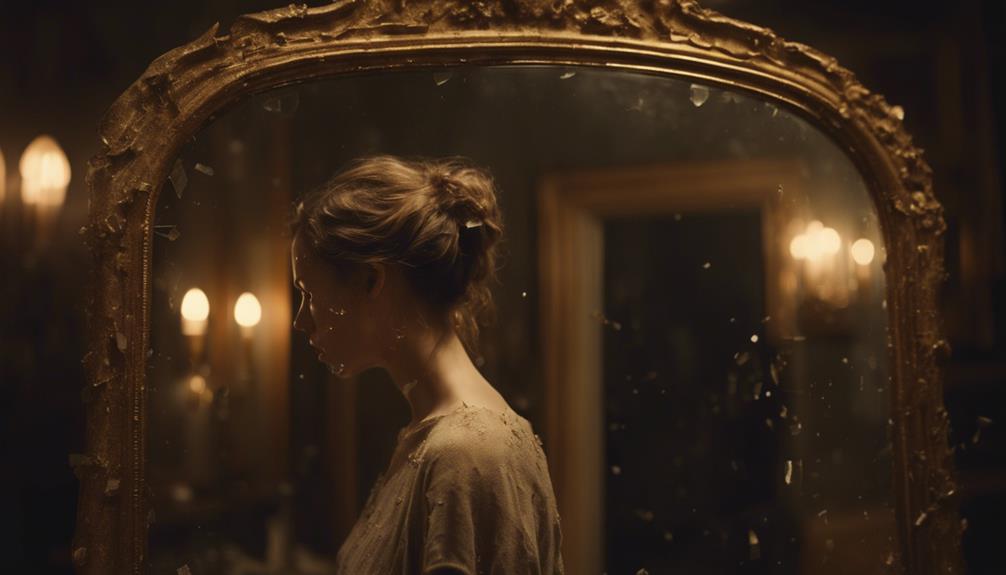
As the fear of being outed continues to cast a shadow over the lives of LGBTQ actors in Hollywood, it's imperative to acknowledge the lingering sense of rejection that still plagues the industry.
For many, the anxiety of being discovered is deeply entwined with the fear of losing their career, and subsequently, their sense of identity.
As a result, overcoming this fear becomes a vital step towards achieving true visibility and acceptance in the entertainment industry.
Fear of Rejection Lingers
LGBTQ actors' fear of rejection persists, fueled by the industry's long history of advising them to conceal their sexual orientation or gender identity to avoid being typecast or losing career momentum. This fear is deeply rooted in the industry's discriminatory past, where LGBTQ actors were often compelled to conceal their true selves to maintain their careers.
Studies have shown that many LGBTQ actors are advised by industry professionals to stay closeted, fearing that coming out will lead to typecasting, limited roles, and potential backlash. This fear of rejection and discrimination in Hollywood leads many LGBTQ actors to hide their sexual orientation or gender identity.
- Fear of being outed can impact career opportunities and public perception.
- Industry professionals often advise LGBTQ actors to stay closeted to maintain marketability.
- Coming out in Hollywood is influenced by concerns about typecasting, limited roles, and potential backlash.
- LGBTQ actors face challenges in adhering to industry norms and expectations regarding coming out.
This lingering fear of rejection continues to affect LGBTQ actors, making it essential to address and overcome these challenges to create a more inclusive and accepting environment in Hollywood.
Secrets and Anxiety Entwined
Fear and anxiety intertwine like a double helix, as the threat of being outed perpetuates a culture of secrecy and silence among LGBTQ individuals in Hollywood. This toxic environment forces many to manage dual lives, concealing their true identities to avoid career repercussions. The pressure to conform to traditional norms is overwhelming, with many LGBTQ actors feeling they must uphold a facade to maintain marketability and appeal to mainstream audiences.
| Fear of Outing | Anxiety Level | Career Impact |
|---|---|---|
| Fear of loss of fans | High | Decreased box office sales |
| Fear of being typecast | Medium | Limited role opportunities |
| Fear of industry backlash | High | Blacklisting and ostracism |
| Fear of personal safety | Very High | Threats and harassment |
| Fear of being outed by others | Medium | Loss of control and privacy |
The anxiety and fear of being outed can lead to increased stress, mental health issues, and limited opportunities for LGBTQ actors in the industry. Overcoming this fear is a complex process that involves managing personal identity, career aspirations, and societal expectations. It is essential to create a safe and inclusive environment in Hollywood, where LGBTQ individuals can thrive without fear of persecution or rejection.
The Impact on Mental Health and Wellbeing
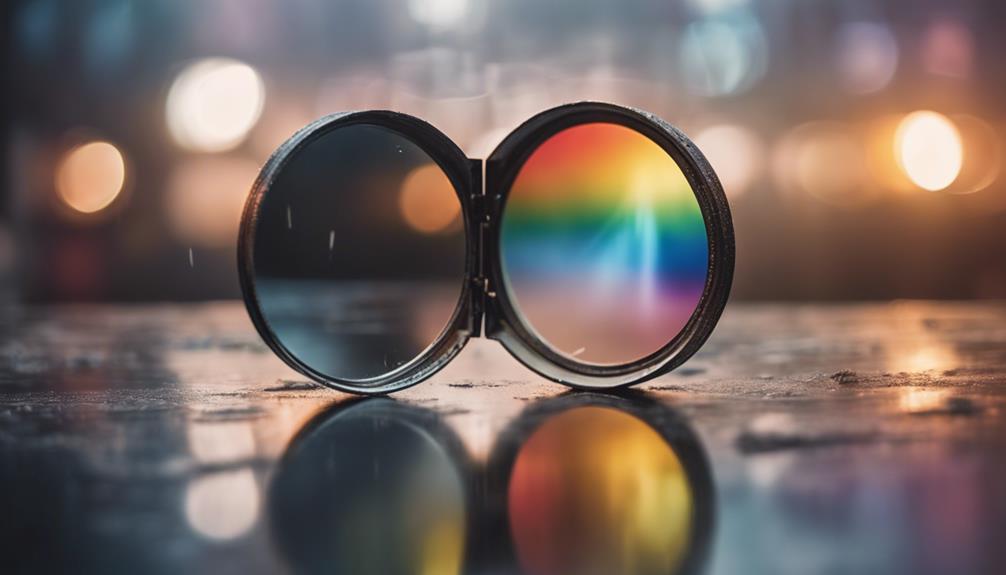
Coming out in Hollywood can have a profoundly positive impact on an individual's mental health and wellbeing. Embracing their authentic selves can lead to a significant reduction in anxiety and depression. This is especially true for LGBTQ individuals, who often face unique challenges in the industry. Studies have shown that being open about one's identity can lead to improved mental health outcomes, including reduced symptoms of anxiety and depression.
Here are some key facts about the impact of coming out on mental health and wellbeing:
- Reduced anxiety and depression: LGBTQ individuals who are open about their identity experience less anxiety and depression.
- Increased acceptance and support: Acceptance and support from colleagues and audiences can positively impact the mental health of those who come out in Hollywood.
- Visibility and representation matter: Visibility and representation of openly LGBTQ individuals in the industry can create a more inclusive and supportive environment for all.
- Empowerment through authenticity: Despite potential challenges, many celebrities have found that coming out in Hollywood has been liberating and empowering for their mental health.
Paving the Way for Future Generations
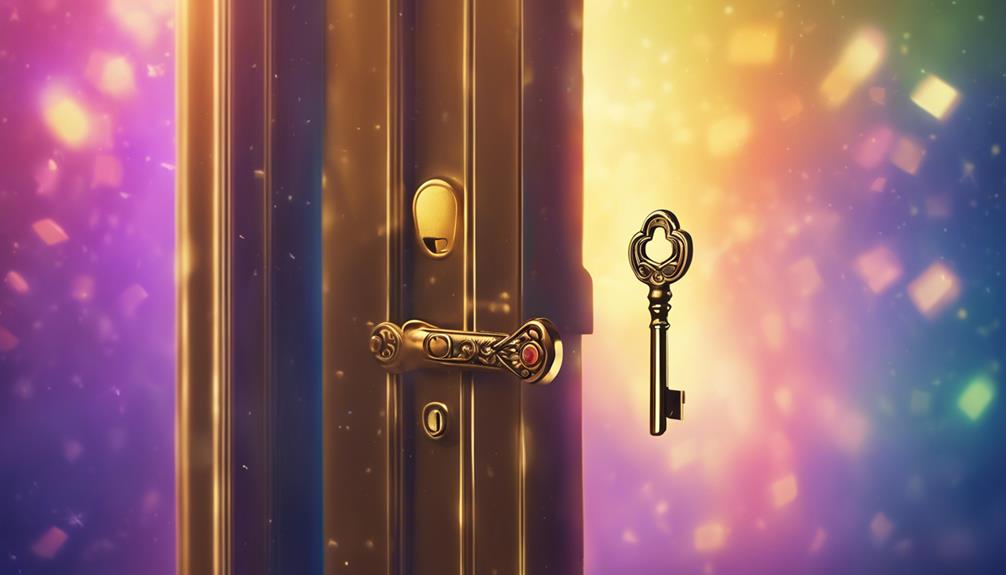
As the industry continues to evolve, pioneers like Ellen DeGeneres, Jodie Foster, and Neil Patrick Harris have broken down barriers, paving the way for future generations of LGBTQ actors.
Early trailblazers have emerged, challenging stereotypes and paving the way for increased visibility in Hollywood.
Breaking Down Barriers
Ellen DeGeneres' courageous coming-out moment in 1997 paved the way for future generations of LGBTQ individuals in Hollywood, sparking a chain reaction of events that would slowly dismantle the industry's long-standing barriers. Her bravery inspired others to follow suit, challenging traditional industry norms and paving the way for increased LGBTQ visibility in Hollywood.
Several notable examples illustrate the impact of coming out on LGBTQ representation in Hollywood:
- Jodie Foster's 2013 Golden Globes speech subtly acknowledged her sexuality, further challenging industry norms for LGBTQ actors.
- Neil Patrick Harris publicly came out in 2006 and has since thrived in Hollywood, inspiring future generations of LGBTQ individuals.
- Openly gay actors like Ian McKellen and Raven-Symoné have faced industry pressures and stereotypes, but continue to advocate for LGBTQ representation.
- Gender fluidity acceptance at premieres and awards shows signals a shift towards inclusivity in Hollywood, encouraging LGBTQ actors to embrace their identities.
These examples demonstrate the significant progress made in breaking down barriers and promoting LGBTQ visibility in Hollywood. As the industry continues to evolve, it's essential to acknowledge the pioneers who've paved the way for future generations of LGBTQ individuals in Hollywood.
Early Trailblazers Emerge
Rock Hudson, a prominent actor in the 1950s, lived a double life, hiding his homosexuality behind a façade of masculinity to maintain his leading man image. This secrecy was a necessity during an era where being openly LGBTQ could be detrimental to one's career.
Similarly, Tab Hunter, a 1950s heartthrob, kept his homosexuality concealed to maintain his leading man image. In later years, actors like Ian McKellen and Jodie Foster faced challenges in being open about their sexuality during their prime acting years.
However, the tide began to shift with Ellen DeGeneres' courageous decision to come out as gay on her sitcom in 1997, paving the way for LGBTQ visibility in Hollywood. These early trailblazers, though facing significant obstacles, have contributed to a shift in the industry's perception of LGBTQ actors, ultimately influencing future generations in Hollywood.
Their bravery has enabled a more inclusive and accepting environment, where actors can be their authentic selves without fear of repercussions.
Role Models Matter
Trailblazing actors have long understood the significance of visibility, recognizing that their openness about their sexuality can pave the way for future generations to live more authentically. Coming out in Hollywood can be a challenging task, but pioneers like Ellen DeGeneres, Ian McKellen, Jodie Foster, and Neil Patrick Harris have paved the way for others to do so. Their bravery has created a ripple effect, inspiring LGBT people to embrace their identities and live more authentically.
These role models have played a significant role in shaping the industry's perception of LGBT actors. They have:
- Increased representation: Their openness has led to more LGBT characters on TV and in films, providing role models for young LGBT people.
- Challenged stereotypes: By being successful and out, they've dispelled myths about LGBT actors being limited in their career choices.
- Inspired authenticity: Their courage has encouraged others to be more authentic about their identities, leading to a more diverse and inclusive industry.
- Paved the way for future generations: By being out and proud, they've created a more welcoming environment for LGBT actors to thrive in Hollywood.
Their legacies continue to inspire future generations of LGBT actors to be more open about their identities, fostering a more inclusive and diverse industry.
Frequently Asked Questions
What Is April 26TH Lgbt?
April 26th LGBT refers to the National Day of Silence, launched by GLAAD to raise awareness about the effects of bullying and harassment on LGBTQ students.
On this day, students take a vow of silence to symbolize the silencing effect of anti-LGBT bullying and discrimination, advocating for safer schools and inclusive policies.
It aims to draw attention to the challenges faced by LGBTQ youth in educational settings and promote acceptance and understanding.
What Do the Letters in Lgbtqia2s+ Stand For?
Like a tapestry woven with diverse threads, the LGBTQIA2S+ community is comprised of various identities.
The acronym stands for Lesbian, Gay, Bisexual, Transgender, Queer, Intersex, Asexual, Two-Spirit, and other sexual orientations and gender identities.
This inclusive term acknowledges the wide range of experiences, moving beyond traditional LGBT categories.
What Does Visibility Management Refer To?
Visibility management refers to the strategic decisions made by celebrities regarding their public disclosure of LGBTQ+ identity. This involves balancing personal privacy and professional opportunities, as coming out in Hollywood can impact an actor's career trajectory.
Celebrities must navigate the complexities of visibility management to maintain a delicate balance between their private lives and public personas.
What Is Queer Theory?
What does it mean to challenge traditional notions of gender and sexuality?
Queer theory, an academic field, actively critiques societal norms and power structures related to sexual orientation, gender identity, and expression. Emerging in the 1990s, it emphasizes the fluidity, complexity, and intersectionality of identities beyond binary categories. Scholars examine how social constructs influence perceptions of sexuality and gender, promoting inclusivity and acceptance.
Conclusion
To sum up, the impact of coming out in Hollywood is profound, with authentic representations of LGBTQ+ lives challenging societal norms and paving the way for future generations. According to a study by GLAAD, LGBTQ+ representation on TV has increased by 22% since 2019, indicating a shift towards greater diversity and inclusivity.
By breaking down stereotypes and overcoming fear of being outed, LGBTQ+ individuals in Hollywood are driving change, promoting visibility, and improving mental health and wellbeing for the community.
